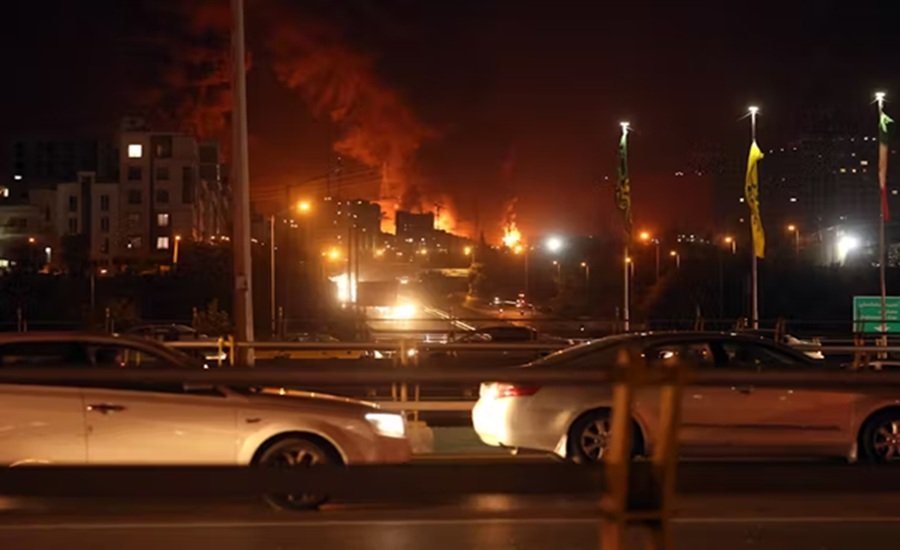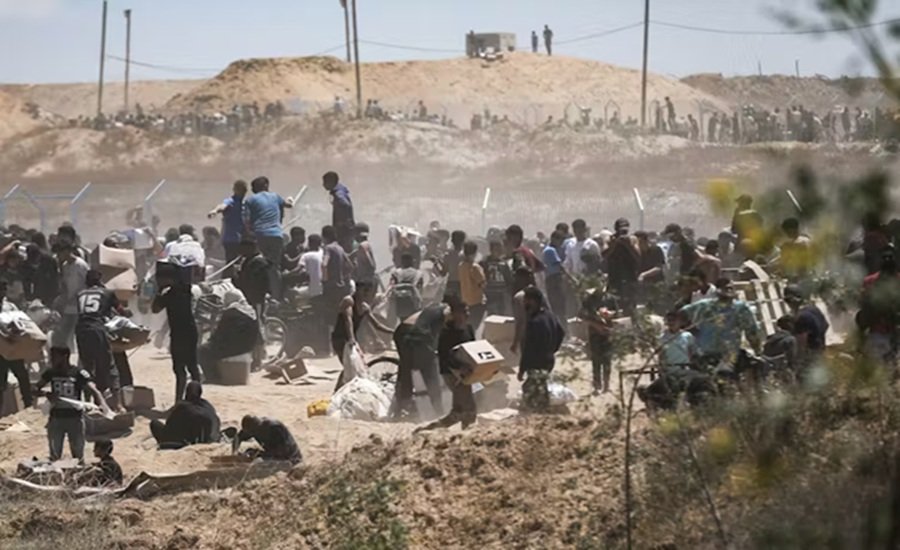Brian Brivati
Israel’s large-scale attack against Iran on June 13, which it conducted without UN security council approval, has prompted retaliation from Tehran. Both sides have traded strikes over the past few days, with over 200 Iranians and 14 Israelis killed so far.
The escalation has broader consequences. It further isolates institutions like the UN, International Criminal Court (ICC) and International Court of Justice (ICJ), which have found themselves increasingly sidelined as Israel’s assault on Gaza has progressed. These bodies now appear toothless.
The world appears to be facing an unprecedented upending of the post-1945 international legal order. Israel’s government is operating with a level of impunity rarely seen before. At the same time, the Trump administration is actively undermining the global institutions designed to enforce international law.
Other global powers, including Russia and China, are taking this opportunity to move beyond the western rules-based system. The combination of a powerful state acting with impunity and a superpower disabling the mechanisms of accountability marks a global inflection point.
It is a moment so stark that we may have to rethink what we thought we knew about the conduct of international relations and the management of conflict, both for the Palestinian struggle and the international system of justice built after the second world war.
The Israeli government is, in addition to its preemptive air campaign against Iran’s nuclear programme, advancing with impunity on three other fronts. It is tightening its hold on Gaza, with the prospect of a lasting occupation increasingly possible.

Israel is continuing its strikes on Iran’s nuclear programme and energy facilities. — EPA
Senior Israeli ministers have also outlined plans for the annexation of large parts of the occupied West Bank through settlement expansion. This is now proceeding unchecked. Israel confirmed plans in May to create 22 new settlements there, including the legalisation of those already built without government authorisation.
This is being accompanied by provocative legislation such as a bill that would hike taxes on foreign-funded non-governmental organisations. The Israeli government is also continuing its attempts to reduce the independence of the judiciary.
Hardline elements of Israeli prime minister Benjamin Netanyahu’s cabinet say they will collapse the government if he changes course.
The ICJ moved with urgency in response to Israel’s actions in Gaza and the West Bank. In January 2024, it found evidence that Palestinians in Gaza were at risk of genocide and ordered Israel to implement provisional measures to prevent further harm.
Then, in May 2024, as Israeli forces pressed an offensive, the ICJ issued another ruling ordering Israel to halt its military operation in the southern Gazan city of Rafah immediately. It also called on Israel to allow unimpeded humanitarian access to the Gaza Strip.
The court went further in July, issuing a landmark advisory opinion declaring Israel’s occupation of Palestinian territory illegal. The ICC took bold action by issuing arrest warrants for Netanyahu, his former defence minister Yoav Gallant, and the leaders of Hamas.
Disregarding international law
These dramatic attempts to enforce international law failed. Israel only agreed to a temporary ceasefire in Gaza in January 2025 when Washington insisted, demonstrating that the only possible brake on Israel remains the US.

Palestinians carry aid supplies received from the US and Israel-backed Gaza Humanitarian Foundation on May 29. — EPA
But the second Trump administration is even more transactional than the first. It prioritises trade deals and strategic alliances – particularly with the Gulf states – over the enforcement of international legal norms.
In January, Trump issued an executive order authorising sanctions on the ICC over the court’s “illegitimate” actions against the US and its “close ally Israel”. These sanctions came into effect a little over a week before Israel launched its strikes on Iran.
Trump then withdrew the US from the UN human rights council and extended a funding ban on Unrwa, the UN relief agency for Palestinian refugees.
A further executive order issued in February directed the state department to withhold portions of the US contribution to the UN’s regular budget. And Trump also launched a 180-day review of all US-funded international organisations, foreshadowing further exits or funding cuts across the multilateral system.
In May 2025, the US and Israel then advanced a new aid mechanism for Gaza run by private security contractors operating in Israeli-approved “safe zones”. Aid is conditional on population displacement, with civilians in northern Gaza denied access unless they relocate.
This approach, which has been condemned by humanitarian organisations, contravenes established humanitarian principles of neutrality and impartiality.
In effect, one pillar of the post-war order is attacking another. The leading founder of the UN is now undermining the institution from within, wielding its security council veto to block action while simultaneously starving the organisation of resources. The US vetoed a UN security council resolution calling for a ceasefire in Gaza on June 4.
The implications of this turning point in the international order are already playing out across the globe. Russia is continuing its war of aggression in Ukraine despite rulings from the ICJ and extensive evidence of war crimes. It knows that enforcement mechanisms are weak and fragmented and the alternative Trumpian deal making can be played out indefinitely.
And China is escalating military pressure on Taiwan. It is employing grey-zone tactics, that do everything possible in provocation and disinformation below the threshold of open warfare, undeterred by legal commitments to peaceful resolution.
These cases are symptoms of a collapse in the credibility of the post-1945 legal order. Israel’s policy in Gaza and its attack on Iran are not exceptions but the acceleration. They are confirmation to other states that law no longer constrains power, institutions can be bypassed, and humanitarian principles can be used for political ends.
c. The Conversation

